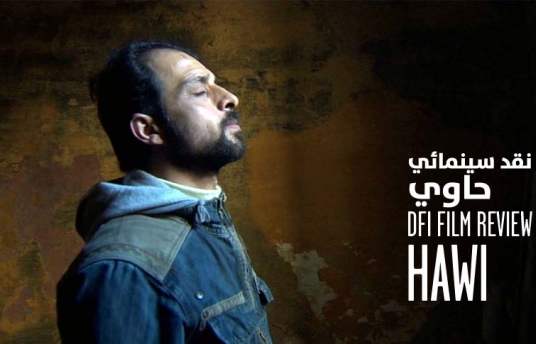DFI Film Review: Hawi (2010)
Aug 07, 2011

Written by Reem Saleh, New Media, DFI
Film: Hawi
Year: 2010
Director: Ibrahim El-Batout
Stars: Ibrahim El-Batout, Mahmoud Abodoma, Rina Aref and Hany El Dakak
Genre: Drama
‘Hawi’ (magician or juggler) contemplates stories of several people in what may look like unconnected subplots. Set in the Egyptian city of Alexandria, Ibrahim El-Batout travels through his characters to a realistic portrait of ordinary people you might encounter randomly, taking for granted that they might have interesting chronicles. He stopped where others marched away and brought together different pieces of a desperate society.
Hawi - Trailer
إعلان فيلم حاوي
From the sea of Alexandria everything starts: misery, happiness and dreams. Stories grow in parallel, similar to the multi-plots structure of films like ‘Crash’ and ‘Magnolia’, but set to a different mood, like the road films inspired by the genre of acclaimed filmmaker Abbas Kiarostami. Many events interweave at a slow but reflexive pace, as we witness them smoothly develop in the heart of each character. Their stories then drag us in the daily routine of people, who seemingly have nothing in common.
The film opens with Youssef (Mohamed El Sayed) who just got released from prison. All he can think of is his beautiful blind daughter, who never ceased to miss him. After years of absence, she feels the presence of her father in a breathtaking performance about the strong spiritual link that bonds them. With a lot of affection between them, Youssef starts obsessing about securing the future of his daughter at any cost.
Similar to Yousef is Ibrahim (Ibrahim El-Batout), who appeared impromptu after years of exile in France. He is now trying to connect with his daughter Aya (Perry Moataz), by recruiting her as a host in a TV show. But Aya has no idea that her employer – who shows strong signs of care – is actually her father. From the moment he interviews her for the job, the awkward encounter leaves you in anticipation to whether the identity of her father will be revealed to her or not.
Then comes a particular character – and one of my favorites – Hanan (Rina Aref). This woman risks her reputation because she believes in her career as a belly dancer. It’s the only thing that brings her real happiness. At the same time, she is running against the current of a society that condemns her art. When robbers attack her, the police officer – instead of assisting her – enjoys humiliating this powerless woman. According to him, she’s just a dancer not worthy of respect. She defends herself with confidence saying, “I am an educated belly dancer and I do it because I love it”. This memorable scene makes a strong statement to both the ruthless officer and the viewers.
At the same time, Hanan’s isolated brother Jaafar (Sherief El Desouky) is singing songs of loneliness. He doesn’t seem to accept the fact that his horse, and only friend, is about to die.
El-Batout goes through these different stories with a traveler’s eye of someone who knows his city well. He implements a unique vision with a rebellious style. And, he shot his film with minimal resources and unpaid amateur actors. The actors were barely briefed about their roles; they discovered the script bit by bit only when the camera was about to roll. What’s even more interesting is the way the cast got recruited which I really enjoyed discovering on ‘Hawi’s official website. The unconventional means, based on improvised dialogue, surely brought genuineness to the protagonists. The performance may vary at times from an actor to the other, however it flows within the heart of everyday contemporary Egypt.
In his third feature, El-Batout draws un-judged the socio-political fractions of a torn yet dignified society. The film reflects all corners of the city, people of all ages, and social classes. They are unmasked until they all became similar in their search for an escape. It appears they all hide from, or behind, that which brings them joy. This joy that is felt in simple things, like befriending a horse, belly dancing, or just looking at the eyes of a child. And life forces them to juggle between everyday struggles and their own dreams.
The film received the Best Arab Film Award at the 2nd edition of the Doha Tribeca Film Festival (also co-produced by DFI). In its charming tale, ‘Hawi’ brings another meaning to magic briefed in the lyrics of this magnificent song from the film that says, “I have become a magician … accustomed to not expressing my feelings… I have learnt how to pull a loaf of bread from the heart of poverty… and expert at hiding my tears when in pain…” and that’s what the real magic coming from the people is truly about!
Ibrahim El-Batout - Interview
مقابلة مع ابراهيم البطوط